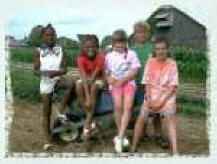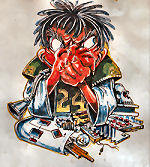|
Robotic Musicians from Tufts University on Vimeo. |
|
|
Major Goals for Students
|
Possible Course Topics
|
||||||||||||||||||||
|
The course will be designed with the following characteristics:
|
|||||||||||||||||||||
Reference Documents:
| Out-of-School Time STEM (PDF ) |
Building Experience, Building Bridges Trends, Questions, and Findings from the Field June 2010
This report reviews patterns, challenges, and questions developing in the field of out-of school- time (OST) science, technology, engineering and mathematics (STEM) programs by drawing on the efforts of some two dozen federally funded programs that participated and presented their work at a conference held in Washington, DC in October of 2009. Reflecting the questions and concerns of both practitioners and researchers in the OST STEM field, the report is intended to inform the work of OST educators, researchers, and funders.
|
|
Learning Science in Informal Environments
|
The Committee on Learning Science in Informal Environments was established to examine the potential of nonschool settings for science learning.
|
|
|
|
Proposed Plans
| Plan | Description |
| Syllabus for PreK to 2nd grade | Overview of a proposed after school program based on Reggio Emilia learning approach |
| Plan_2 | Overview of both the finding Bugs and using stories. |
| Entrepreneurship | What is it? |
| Design Thinking for teachers | Flow map of Design Thinking Process. |
| Course Design | The elements of developing the course |
|
|
Basic concept of an after-school program that focuses on life Skills learning |
Examples of After School Programs
| Worcester Think Tank, Worcester MA | The innovation Institute, Newtonville, MA |
| Einstein's Workshop, Burlington, MA | Curiosity Hacked, Locations in MA |



